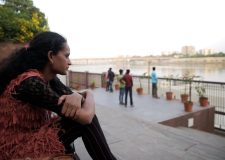Anti-squatting laws progress through Parliament
NCTJ student Libby Powell, of City College Brighton & Hove, reports on the anti-squatting laws and finds out what it means locally
Anti-squatting legislation progresses through parliament today (10th Jan), as the revised Legal Aid and Punishment of Offenders Bill is submitted to line-by-line scrutiny in the House of Lords.
Amongst proposed changes to the Bill is a new law to make the act of squatting in a residential building a criminal offence, punishable by up to a year in prison or a £5,000 fine.
The new legislation has local roots. The campaign to criminalise squatting has been led by Mike Weatherley MP, who submitted an Early Day Motion to parliament back in March 2011.
Speaking of his pride in seeing his recommendations as a backbencher advance towards becoming law, Weatherley has said his target was not the ‘down-and-out’ but political and ‘lifestyle’ squatters in Brighton and Hove.
However, Caroline Lucas MP and national housing charities have spoken out against the proposed law, warning that it makes no distinction between those who chose to squat and those who turn to it as a last resort.
Brighton and Hove is in the 10 per cent of cities with the highest number of vacant dwellings in the country.
Data from homeless support charity, Shelter, shows a 21 per cent rise in households declared homeless in Brighton and Hove over the first six months of 2011. Despite the need for housing, the Department for Communities and Local Government has a record of 4,128 empty buildings in the city. 251 of these are council-owned. This puts Brighton and Hove in the 10 per cent of cities with the highest number of vacant dwellings in the country.
Weatherley agrees that empty buildings are a problem but says that this should not give people the go-ahead to occupy private property: “If you have a classic car sitting in the road and you think that it will be a good investment for the future, it doesn’t give someone else the right to drive that car.”
‘Matt’, of the Squatters’ Network of Brighton and Hove, questions whether this law should be a priority when there is an urgent need for shelter and a 10,852-strong waiting list for council housing: “In a time of austerity when there are so many places that are empty, it seems a very strange thing to be doing.”
He also disputes Weatherley’s classification of ‘lifestyle’ squatters: “People who have been homeless or have mental health problems are squatting because they are outside the system and they need a way in. There are some who are squatting because of their political beliefs. But moving monthly? Having to fix properties that have been smashed up? If it’s a lifestyle, it is a hard one.”
Weatherley said that revising the laws around squatting was already on the Conservative agenda; they simply needed a ‘nudge’.
This will give fuel to critics have accused the coalition of rushing through pre-determined legislation and ignoring the views of experts and key stakeholders. 90 per cent of the responses to the public consultation were against changes to the law.
In late December, a group of squatters living in the vacant council-owner Ainsworth House, Wellington Road, Brighton, clashed with bailiffs but were granted a temporary injunction by the court at the ninth hour, postponing their eviction until after Christmas. The building has been empty for two years. Under the new laws, it is likely that all 25 of the squatters would have faced a fine or a stint in prison.
Currently, occupying a residential property without permission is classified as trespass and is dealt with under civil law, as opposed to criminal law. This means that property owner must initiate legal action themselves against the squatters. They will usually be granted an interim possession order by the local magistrates court within 24 hours, allowing the police to intervene.
Current law prohibits property owners from violently evicting a person from their house, compelling them to seek a court order before acting. This was initially passed to protect tenants, spouses and partners, but has given rise to the notion of ‘squatters’ rights’.
However, it is already a criminal offence to break into a home, to damage doors or windows, or to refuse to leave someone’s home or a home they are about to move in to.
The new law will have the most impact with regards to criminalizing the squatting of empty or derelict buildings that can be accessed without force.
Crisis, the support charity for single homeless people, has said it would like to see the exclusion of buildings that have stood empty for more than six months and where there are no significant steps being taken to refurbish, let or sell the building.
It would also like to see a division made between those who make a decision to squat and those who are homeless, leaving care or women’s refuges. The law as it stands makes no such distinction.
The Lords have no power to reject a bill once passed by the House of Commons but they will have two further opportunities to make amendments to the Bill before it becomes law.
Weatherley said: “As a backbencher I have a duty to ensure that there are not any unintended consequences as a result of the Bill. I will be asking Shelter and Crisis to feedback to me on where they feel the law hasn’t worked.”





















